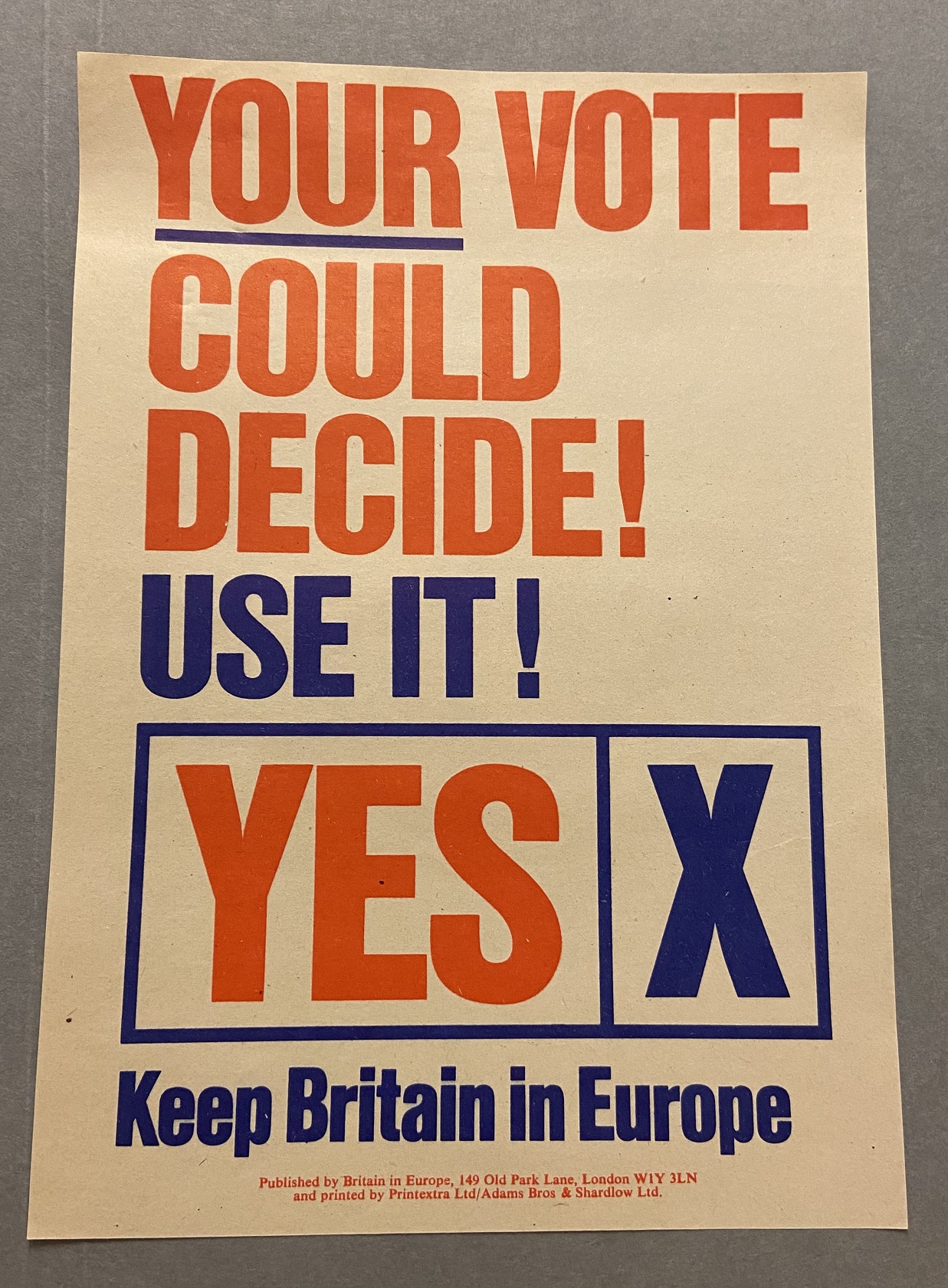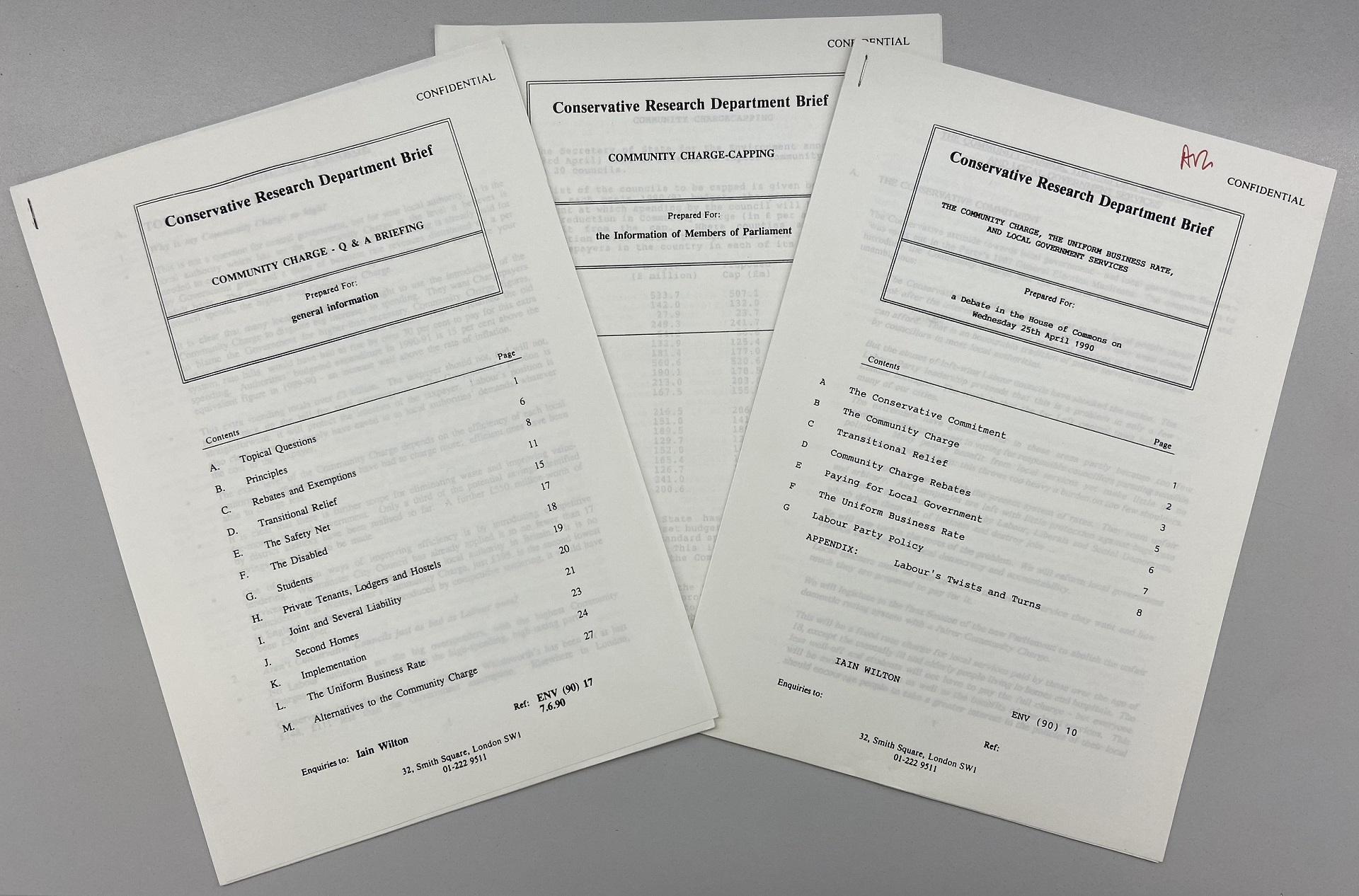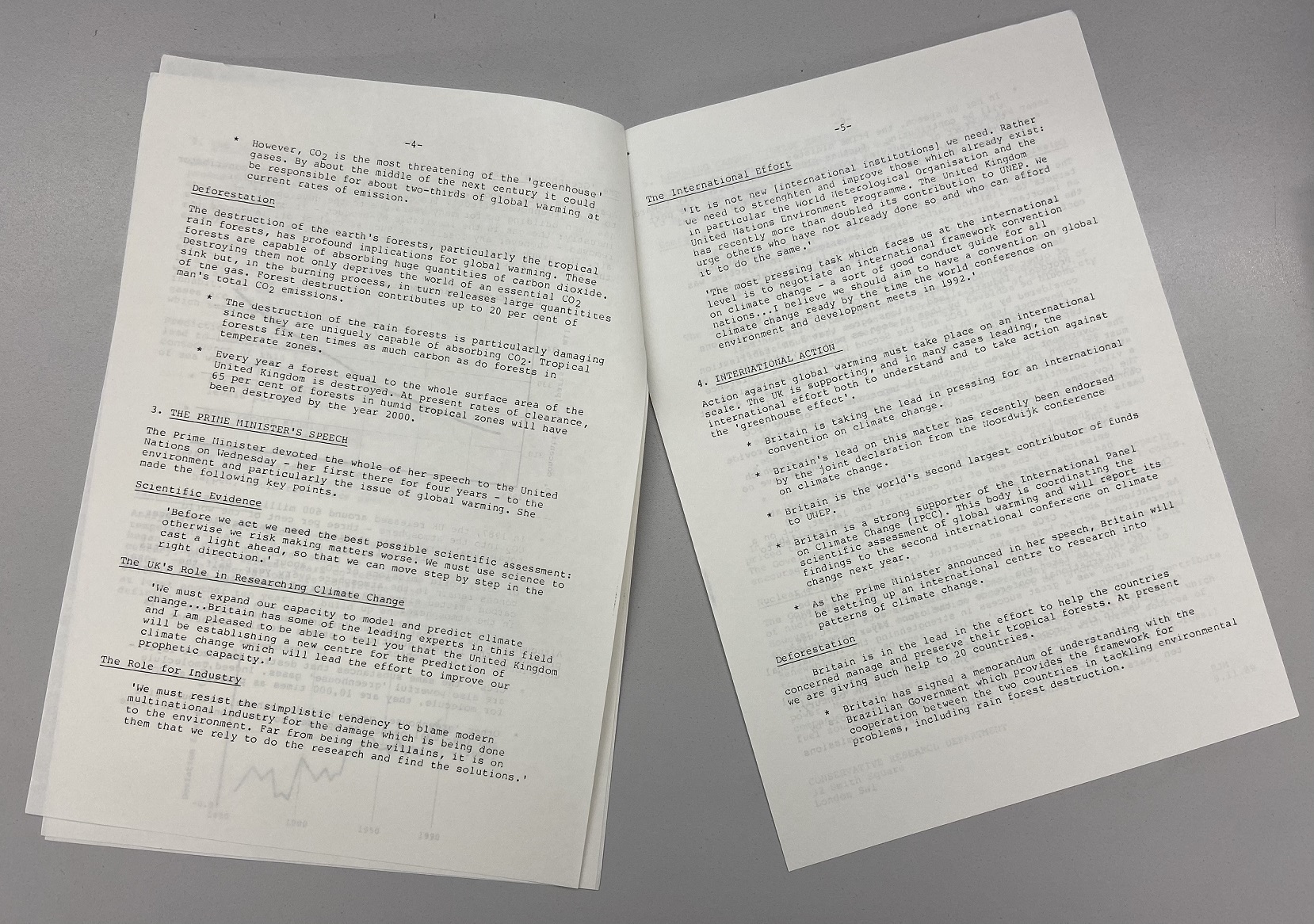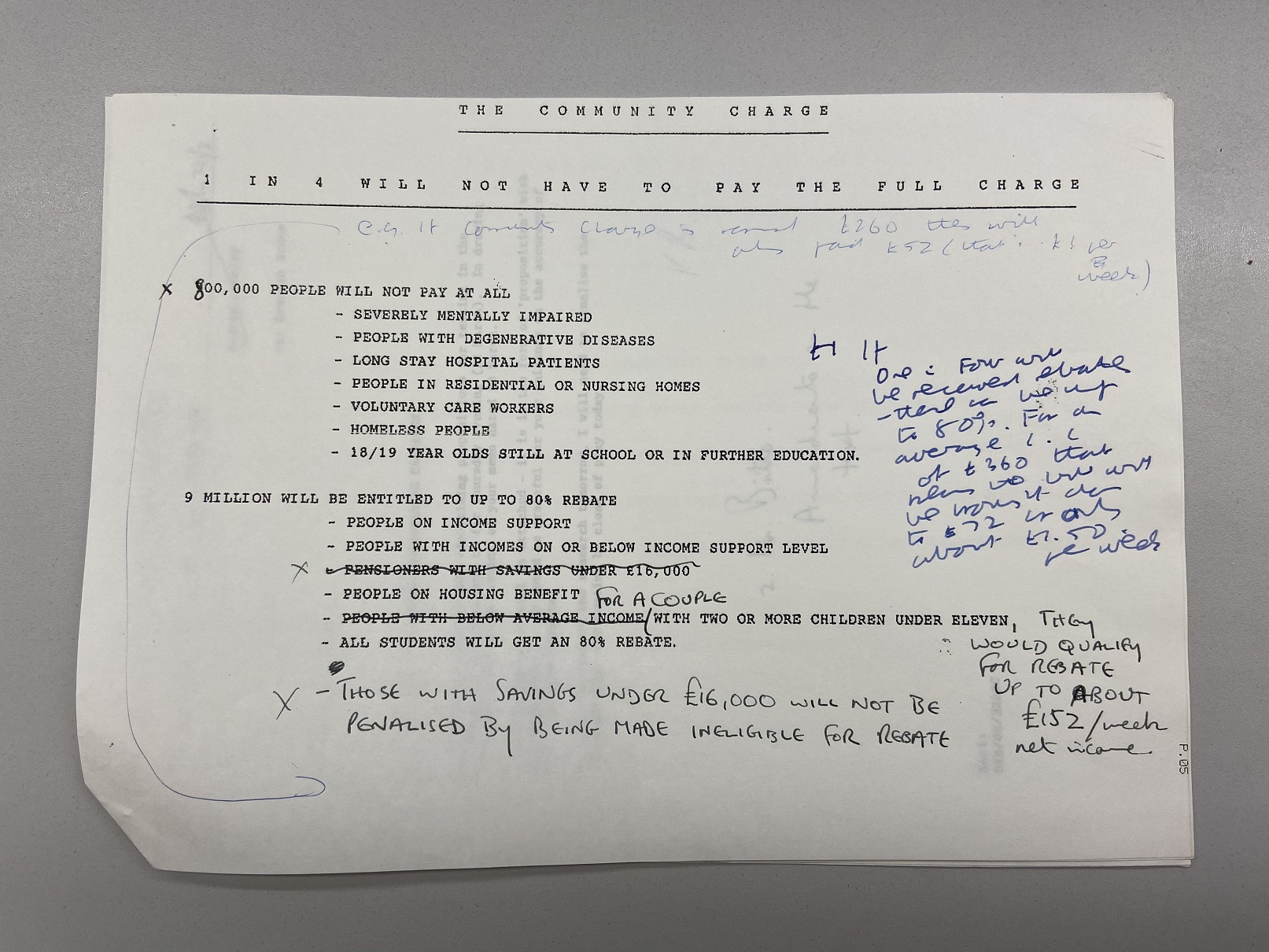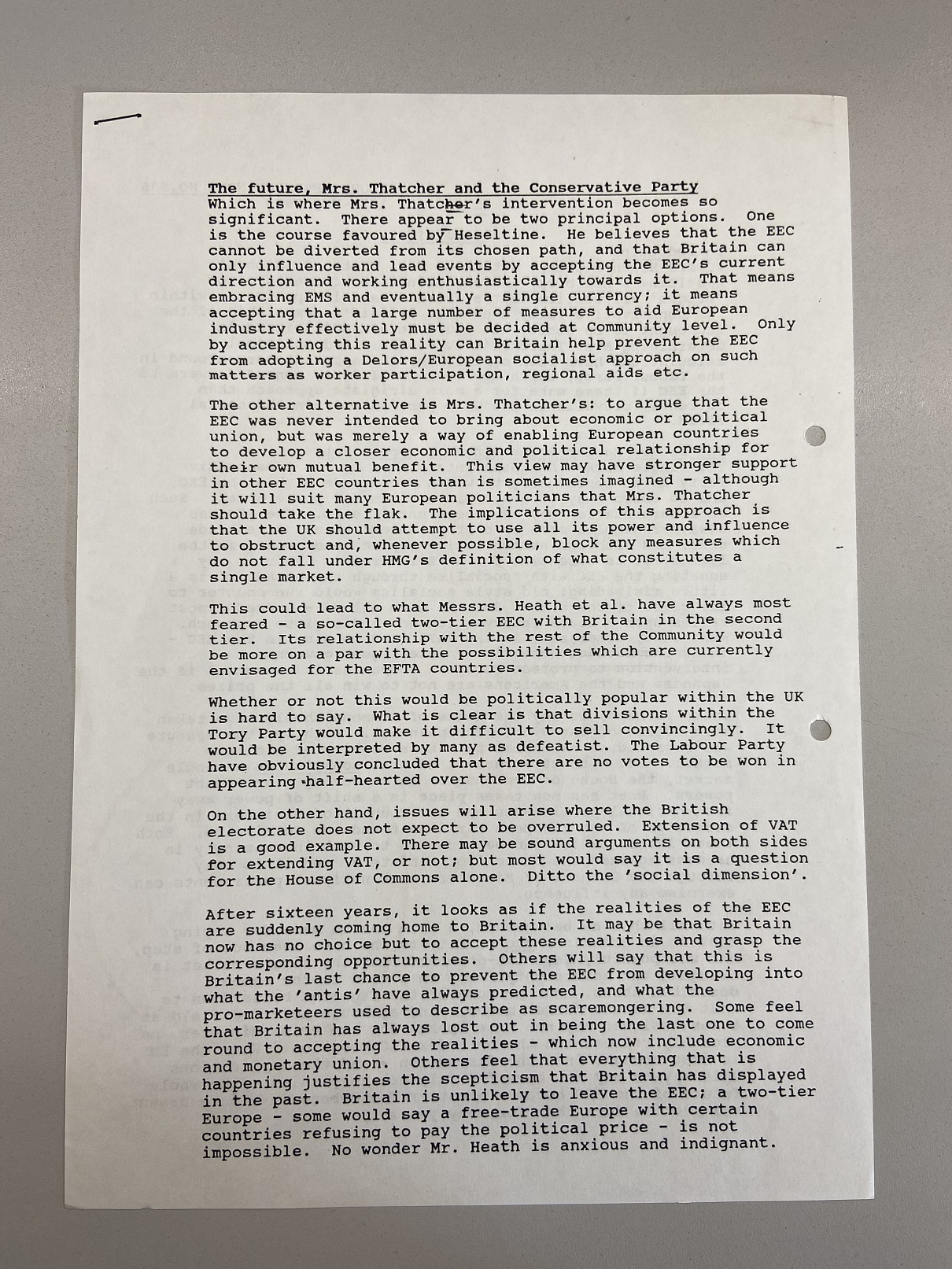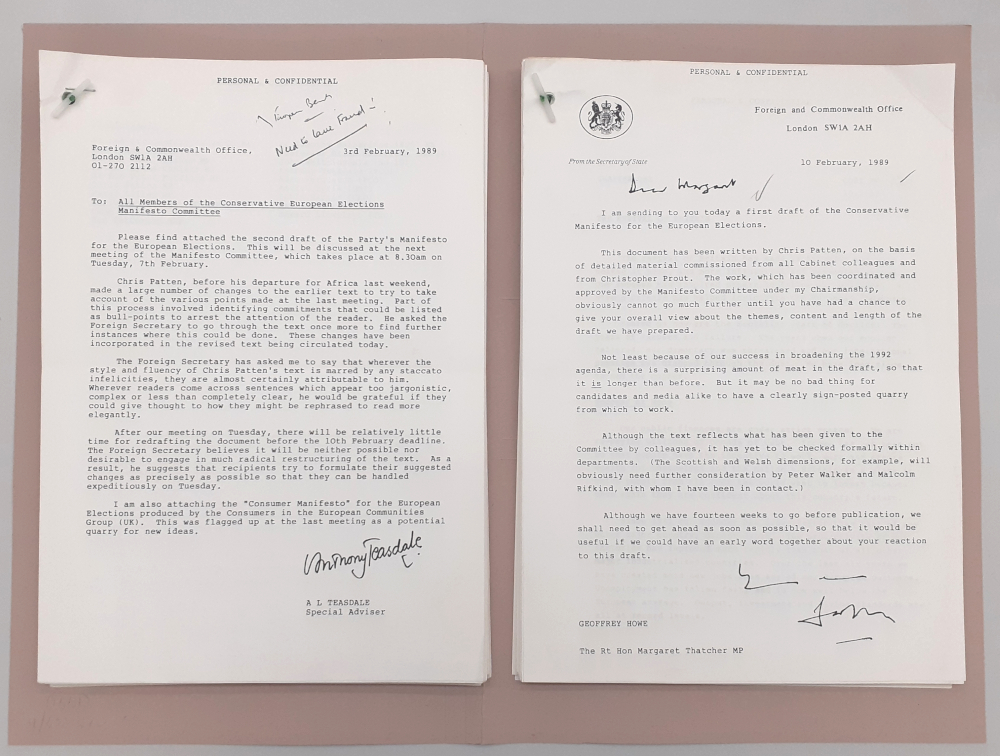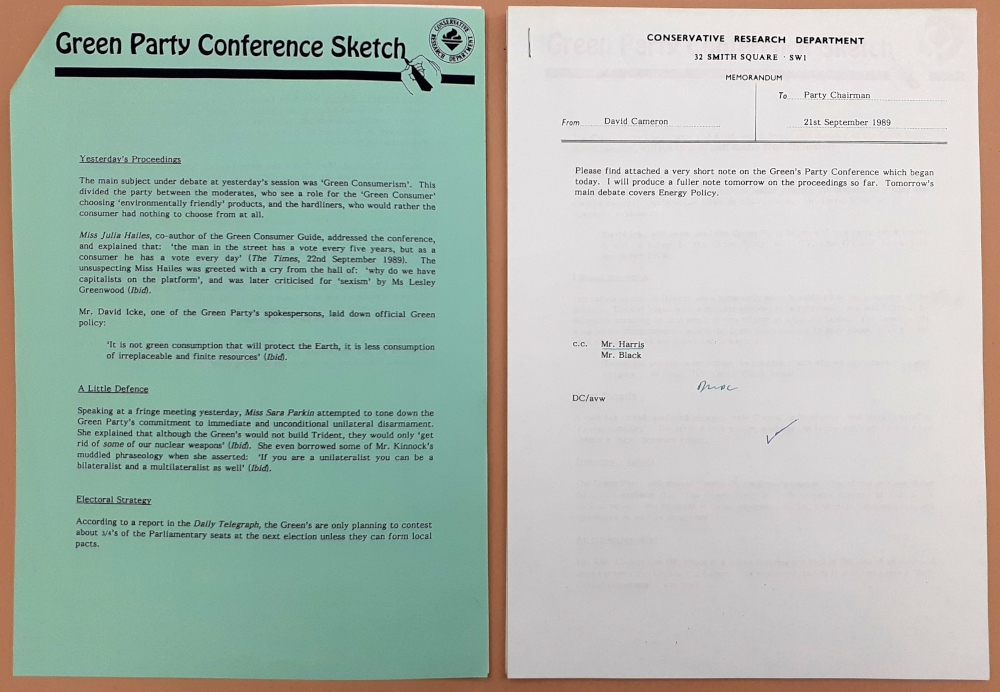Letter Books of David Cameron during his years as head of the Political Section of the Conservative Research Department (CRD), opinion research collected on the strengths and weaknesses of John Major as new leader of the Party, monitoring of opposition parties, including of Militant Labour MP Terry Fields, and an insight into the post and telephone calls received by the Correspondence Section of CRD, are among newly-available Conservative Party Archive files released by the Bodleian under the thirty-year-rule.
Following on from recent years, a large proportion of our new releases are from our collections of CRD files, including subject briefings, letter books of desk officers and subject specialists, and CRD files covering topics such as environmental policy, opinion research, opposition monitoring, and local and by-election preparations. Alongside these CRD files we will also be releasing papers, correspondence and memoranda from the Local Government Department of Conservative Central Office (CCO), Conservatives in the European Parliament, and the Conservative International Office, amongst other material.
This blog post will explore a number of highlights of the newly-released material, demonstrating their value for researchers and historians interested in the Conservative Party and/or British political history in general.
David Cameron’s Letter Books, 1990-1991
The first highlight of this year’s new releases are a number of David Cameron’s letter books from his time as head of the Political Section of CRD, a position he held between 1989 and 1992. Cameron was responsible for monitoring the policies and activities of other political parties, as well as assisting Central Office with the preparation of speaking campaigns, party political and other broadcasts. These letter books therefore give a fascinating insight into the early political career of the former Prime Minister, while also providing details on the Party’s process for monitoring opposition parties and preparing speeches for important figures. This first image shows a couple of examples of memoranda prepared by Cameron in early 1991, illustrating his important role in election planning in the lead up to the 1992 General Election. They reveal some of the key aspects of preparing intelligence on opposition parties, including creating profiles on opposition candidates and monitoring their media statements.

Memoranda written by David Cameron for CRD, planning the monitoring of opposition parties in the run up to the 1992 General Election – CPA CRD/L/5/6/6.
Cameron’s letter books (see files CRD/L/5/6/1-11) include a large quantity of similar files, as well as correspondence with other CRD members, speeches and press releases he prepared for various members of the Party, including the Chairman and Deputy Chairman, and papers and briefings attacking the Labour Party. These should prove a useful resource for researchers, giving detailed examples of the inside workings of the Research Department in the lead up to a general election, and the processes involved in dealing with the opposition. Another example of the items included in these letter books is this handwritten note providing feedback on a series of leaflets created for local government elections in 1990, Cameron advising that the leaflets should ‘remind people that Labour opposed our reforms’, especially as ‘those reforms have proved popular!’, referring to various changes in council services, education, and the NHS.

Note from David Cameron to David Trowbridge (Head of the Local Government Department of CCO), giving feedback on a series of leaflets being prepared for local government elections – CPA CRD/L/5/6/6.
Opposition Monitoring, 1983-1991
In addition to Cameron’s monitoring of other political parties within his role at CRD, this year’s releases contain a range of other files relating to opposition monitoring, particularly of the Labour Party. As noted above, profiles were created of opposition MPs, media regularly trawled through, and opposition speeches and public meetings attended, in order to provide the Conservative Party with crucial information and ammunition. Here is an example of one of many booklets and briefings created by the Research Department which sought to undermine the promises of the Labour Party, highlighting clearly the areas where the voting record of Labour MPs had clashed with their claims.

‘What they claim…and how they voted’ booklet created by CRD to highlight the false promises of the Labour Party – CPA CRD/5/11/1/8.
Alongside the large number of files providing an insight into this opposition monitoring of the Labour Party, we have a particularly notable newly available file which focuses entirely on one MP, Terry Fields. Since CRD’s creation in 1929, few, if any, other Opposition MPs have warranted their own file being kept on them, but due to his membership of Militant, a Trotskyist group in the British Labour Party which came to the fore in 1982 when the Labour-led Liverpool City Council adopted Militant policies, Fields was the exception. As part of this group, Fields, who was Labour MP for Liverpool Broadgreen from 1983 to 1992, was closely monitored until 1991 when he was jailed for refusing to pay his Poll Tax bill and shortly afterwards expelled from the Labour Party by Neil Kinnock. Within this file, CRD/4/16/27, the Research Department kept copies of his regular press-releases, extracts from Hansard containing his contributions in Parliament, and cuttings from newspapers of all leanings, including Militant.

Article from the Daily Telegraph on 3 May 1988 about the involvement of Terry Fields in a strike of school children against the Social Services Bill – CPA CRD/4/16/27.
Post and telephone calls received by the Party, 1988-1991
A significant part of the work of CRD desk officers was receiving and responding to correspondence from the general public in response to Party policies, news headlines, or requesting answers to a whole range of questions. Amongst the newly released material for 2022 are many files illustrating the types of correspondence frequently received and the topics which most interested the general public during the late 1980s and early 1990s. 1991 was John Major’s first full year as Prime Minister, during which he announced the abolition of the deeply unpopular Community Charge, entered British troops into the Gulf War, and sought to fight off the long-lasting recession, all themes which feature in these files. A couple of files in particular, CRD/D/10/3/6 and CRD/L/5/11/1, provide good summaries of the post and telephone calls received by the Correspondence Section of CRD, the two examples below demonstrating the degree of public response to various key issues of the time, including Thatcher’s resignation, the Community Charge, Edwina Currie’s resignation over the Salmonella controversy, and low pension levels.
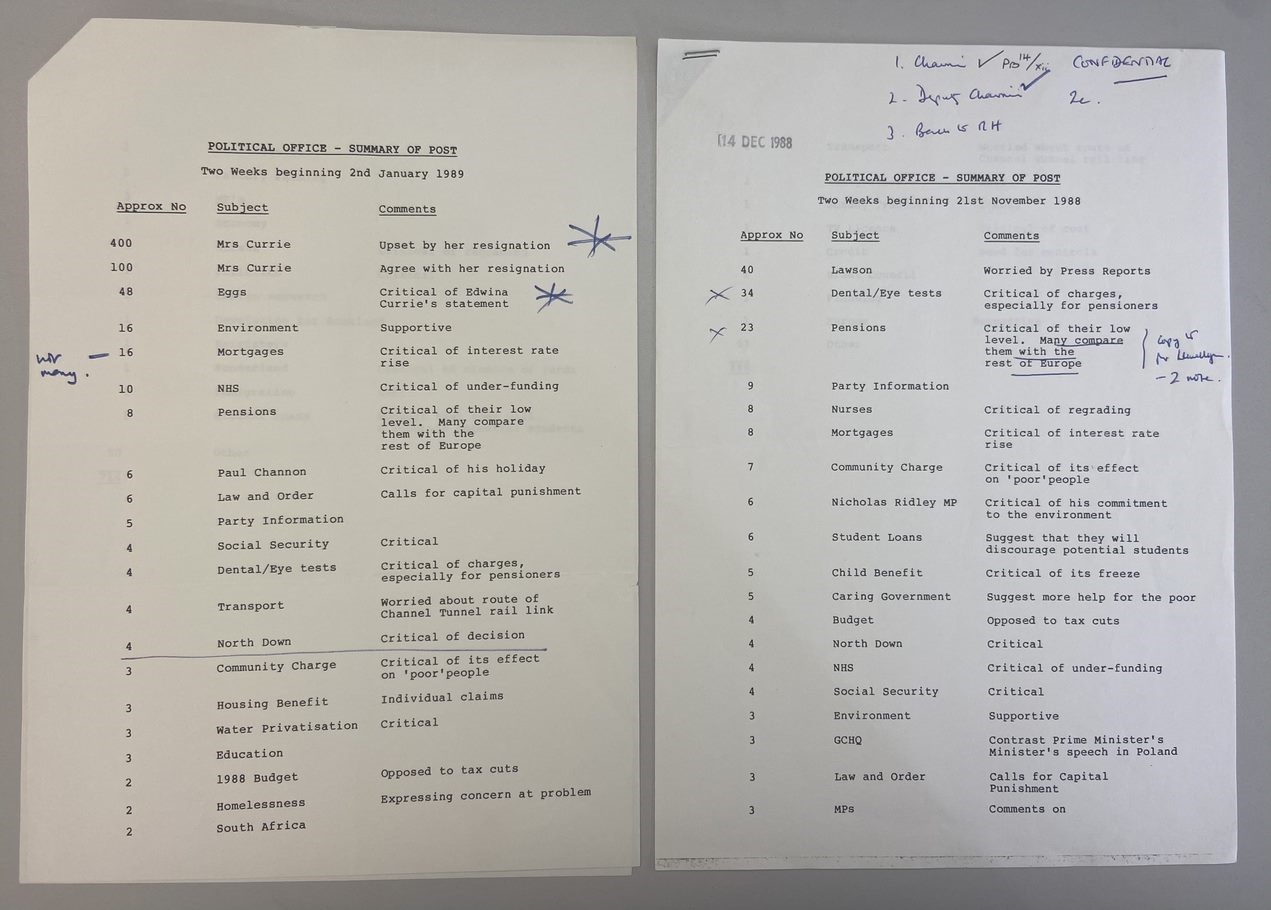
Summary of post received by the Political Office at the end of 1988 and beginning of 1989 – CPA CRD/D/10/3/6.
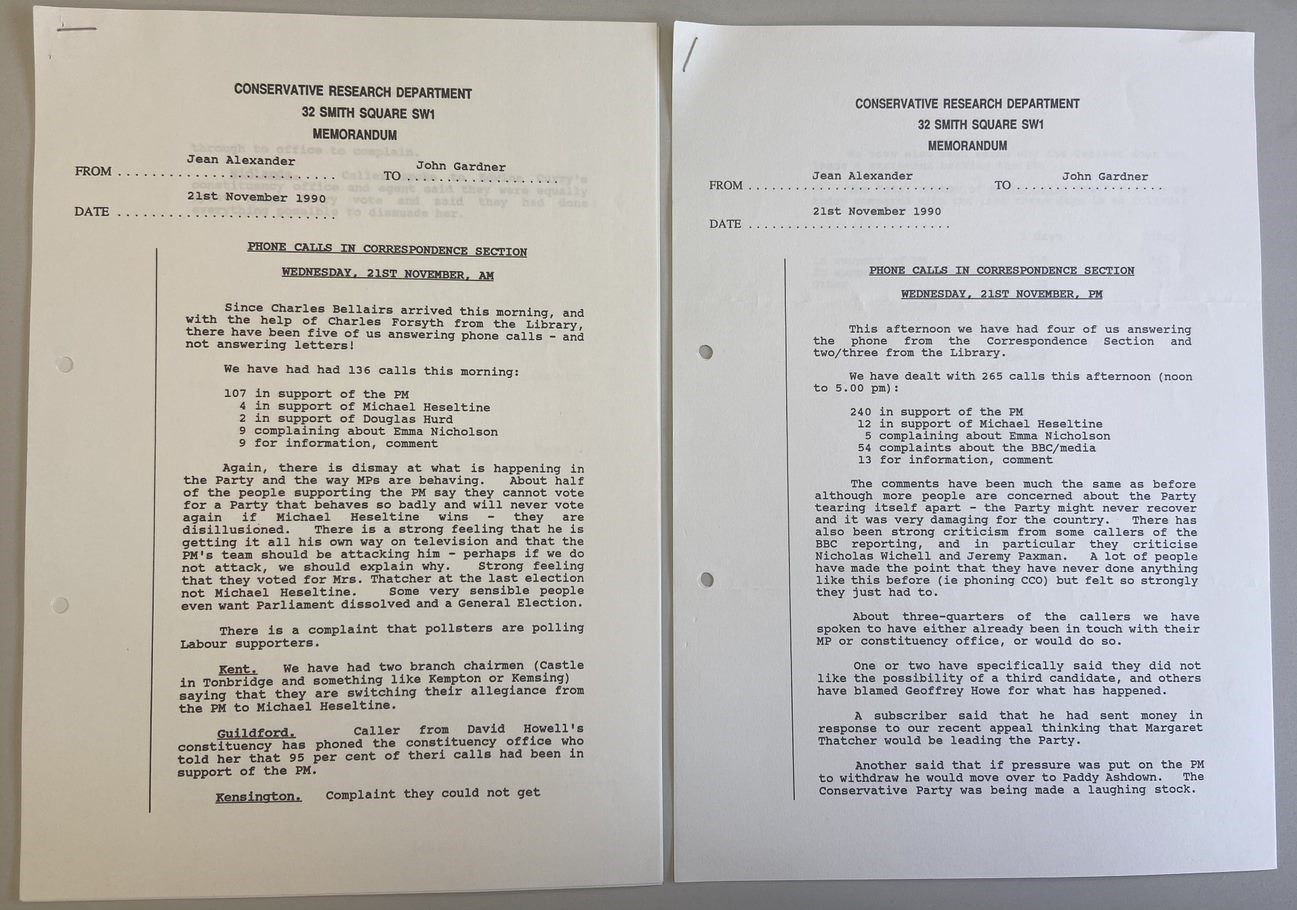
Summary of phone calls received by the Correspondence Section of CRD on 21 November 1990, the day before Thatcher announced her resignation – CPA CRD/L/5/11/1.
Opinion Research, 1990-1991
A final important part of the operations of CRD was gathering information on the opinion of the public, especially when it came to important policy issues and opinion of party leaders. The latter seems to have been particularly important in 1991 as the Party sought to understand and promote their new leader after Thatcher’s eleven and a half years in office. In order to accurately understand how the general public viewed Major, particularly in comparison to the leader of the opposition, in March 1991 CCO commissioned the Harris Research Centre to undertake qualitative research to ‘examine the relative strengths and weaknesses of Mr Major and Mr Kinnock, mainly in terms of their style and personality, amongst weak Conservative voters’. The leaders were compared against a range of personality characteristics, including ‘likeable’, ‘confident’, ‘statesmanlike’ and ‘waffly’, with qualitative responses also recorded. This image shows a summary of Major’s positive characteristics which were mentioned during the survey, for instance describing him as ‘quietly powerful’ and ‘genuine’, giving the Party a good sense of public opinion and a strong position from which to promote certain characteristics and downplay others.

Results of the Harris Research Centre’s research into the personalities and styles of Major and Kinnock – CPA CRD/5/10/4.
All the material featured in this blog post will be made available from 1 Jan 2022. See the full list of de-restricted items here: http://blogs.bodleian.ox.ac.uk/archivesandmanuscripts/wp-content/uploads/sites/161/2021/12/Files-de-restricted-on-2022-01-01.pdf


